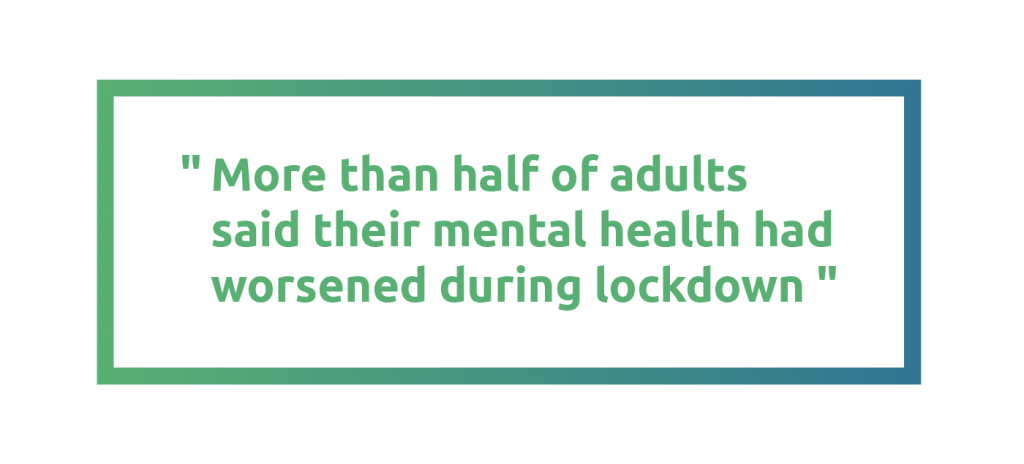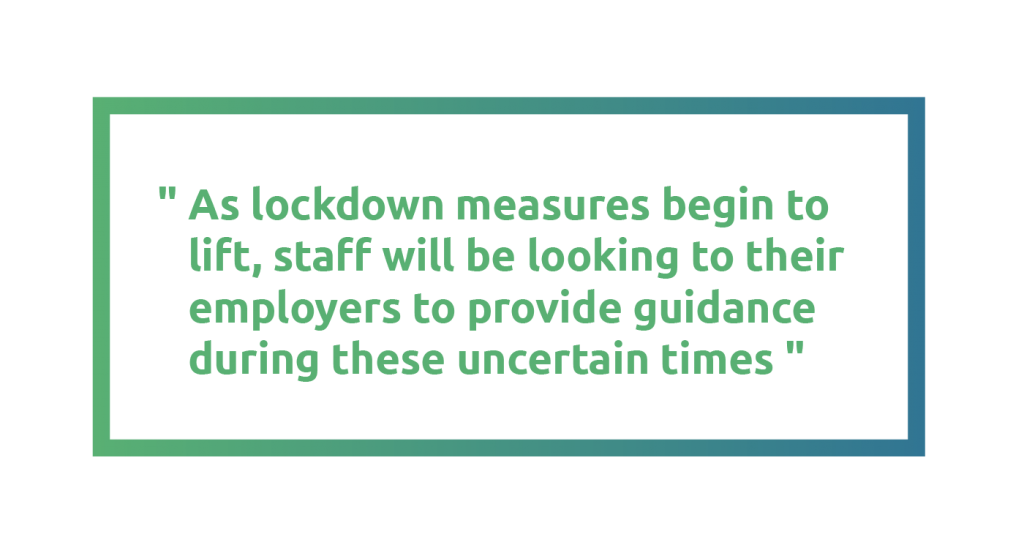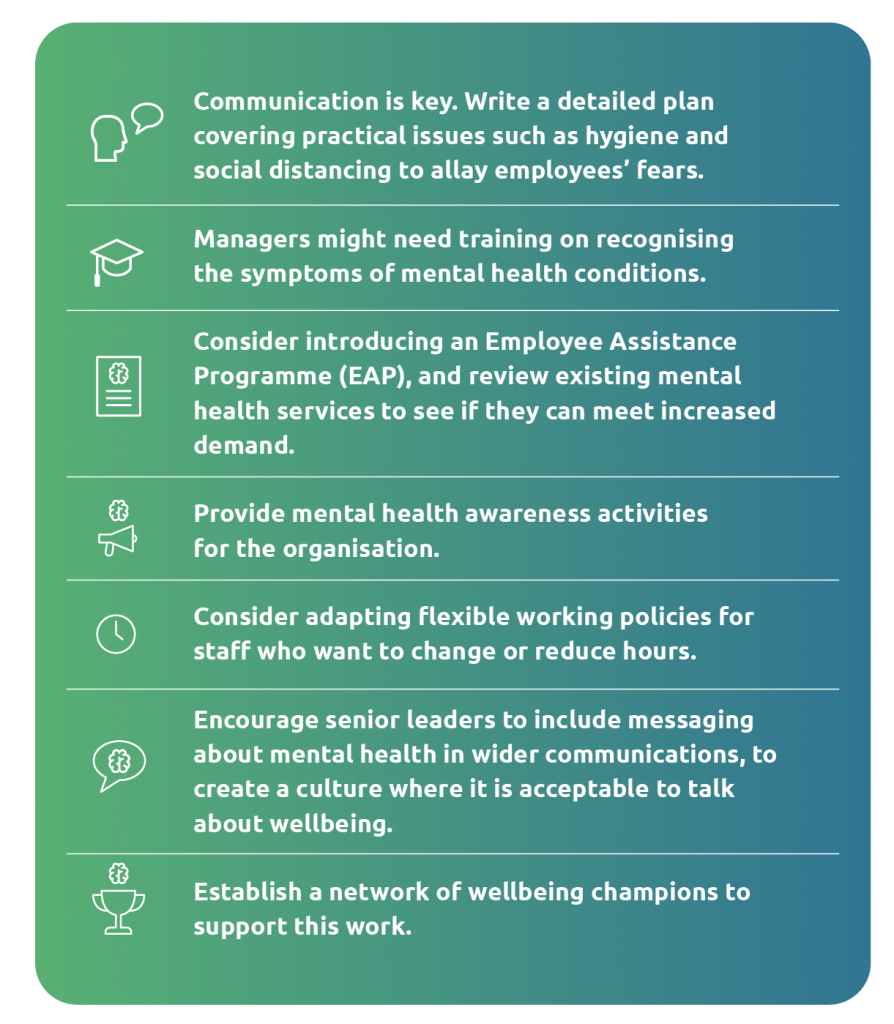Supporting your employees in the transition out of lockdown

If all goes well, the lights will soon be going back on in workplaces around the UK as the Covid-19 pandemic abates. But it’s no return to normal.
The virus is still around, so working environments will look and feel very different for some time to come. And part of the legacy of the pandemic is a tide of mental ill health.
So how should employers smooth the transition back to semi-normality, and boost their employees’ emotional wellbeing?
Mental health: the Covid effect
According to research for Mind, more than half of adults said their mental health had worsened during lockdown between early April and mid-May.  Loneliness, boredom, and concerns about their health or that of their loved ones were the main factors, while more than half were worried about work and finances.
Loneliness, boredom, and concerns about their health or that of their loved ones were the main factors, while more than half were worried about work and finances.
Some 17% had seen their employment status change, e.g. they lost their jobs or were furloughed. Two-thirds of this group had experienced worsening mental health.
Many people with existing conditions such as eating disorders and personality disorders saw these worsen too.
A third of adults did not seek support because they “didn’t feel entitled to it”, while a quarter who tried to access support were unable to do so.
Work worries
Now there is a new concern: the return to the workplace. Mind has produced a toolkit for employers to help their staff back to their usual jobs.
As Mind’s chief executive Paul Farmer says: “The coronavirus outbreak has caused large and sudden changes to the way we work, with businesses and employees forced to adapt quickly. Adjustments can present challenges, including to the mental health and wellbeing of the UK workforce.  “As lockdown measures begin to lift, staff will be looking to their employers to provide guidance during these uncertain times. Many employers are having to make tough decisions and plan for lots of different outcomes.”
“As lockdown measures begin to lift, staff will be looking to their employers to provide guidance during these uncertain times. Many employers are having to make tough decisions and plan for lots of different outcomes.”
A mentally healthy workplace
Employers should already be aware of the need to improve sanitation and enable social distancing in their workplaces.
And HR professionals are accustomed to the process of bringing back staff after a period of absence, e.g. discussing what adjustments need to be made, and agreeing a phased return.
So what other measures are necessary in these extraordinary times?
It’s important to remember that employees are experiencing the pandemic in very different ways. Key workers may be exhausted and traumatised; home workers may be trying to balance their workload with schooling their children; and those on furlough may be fearful of their job security.
Flexible working
As well as the Mind toolkit, detailed advice is available from the Chartered Institute of Personnel and Development (CIPD), whose new guide suggests the following potential interventions, among others.

Compassionate approach
But above all, perhaps, what’s needed is human empathy and understanding.
The Mind toolkit emphasises the critical role played by managers, and the need to “do things in a compassionate way”.
The pandemic has proved that mental wellbeing isn’t just a box to tick – and the crucial support needs to continue as lockdown eases. At Connect Assist, we’re offering ‘taster’ days so people can ease themselves back in gently. We’re talking to employees, letting them know that it’s ok to admit to mental health issues, and valuing their voice in this unprecedented situation.
If you can do that, you’ll be strengthening your relationship with your employees, and boosting your business. And that’s vital to your organisational wellbeing, pandemic or no pandemic.







